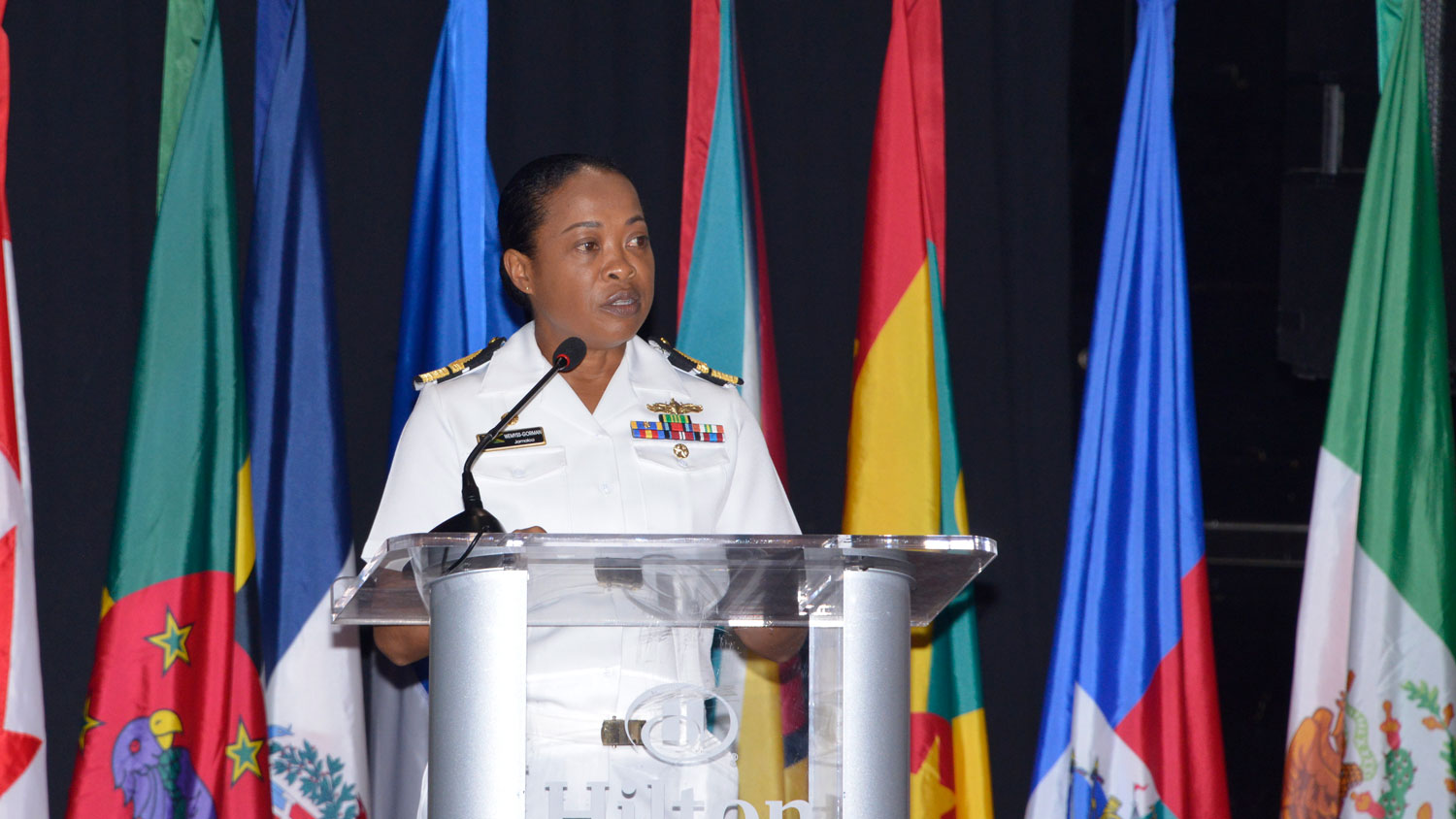
World's only female military chief talks about breaking barriers and inspiring women

The trailblazing Rear Admiral Antonette Wemyss-Gorman, the only female Chief of Defence Staff in the world, has been pivotal in changing the culture towards women who serve in the Jamaican military.
Her passion for gender opportunity in the Jamaica Defence Force (JDF) and determination to be an inspiration to future generations of women is leading the way for Jamaican women to excel in military careers.
During RAdm Wemyss-Gorman's 30-year naval career she became the first female officer to serve at sea, the first woman to reach the rank of commander in the JDF and the first appointment of a woman to a frontline combat role in the Caribbean.
Speaking to Kate Gerbeau, presenter of BFBS' Sitrep podcast, to mark International Women's Day, the Chief of Defence Staff revealed how she hopes all women in the JDF follow her advice
"I'm a firm believer that if you get the opportunity, use it and use it very well and remember that you are not just doing that for yourself, but all the other women who may want to do it in the future," she said.
RAdm Wemyss-Gorman joined the JDF in August 1992 and completed her professional development training at the Britannia Royal Naval College in Dartmouth, HMS Dryad near Portsmouth and the US Naval War College in Newport, Rhode Island.
Despite first impressions, RAdm Wemyss-Gorman packs a punch
She admits facing some physical challenges due to her height – she is 5'2" – but she never saw herself as any less capable than her male counterparts and so always took each challenge with a strong sense of purpose and a strength of character that has seen her become the second-ever female head of an armed force in the world.
She said: "I did not accept that I was any less. I may have more challenges with some things physically, but what does that mean?
"It means that I use my brain more to achieve the objective.
"Just don't ever back down from what you want to do and when you get the opportunity to do it, do not waste it," she added.
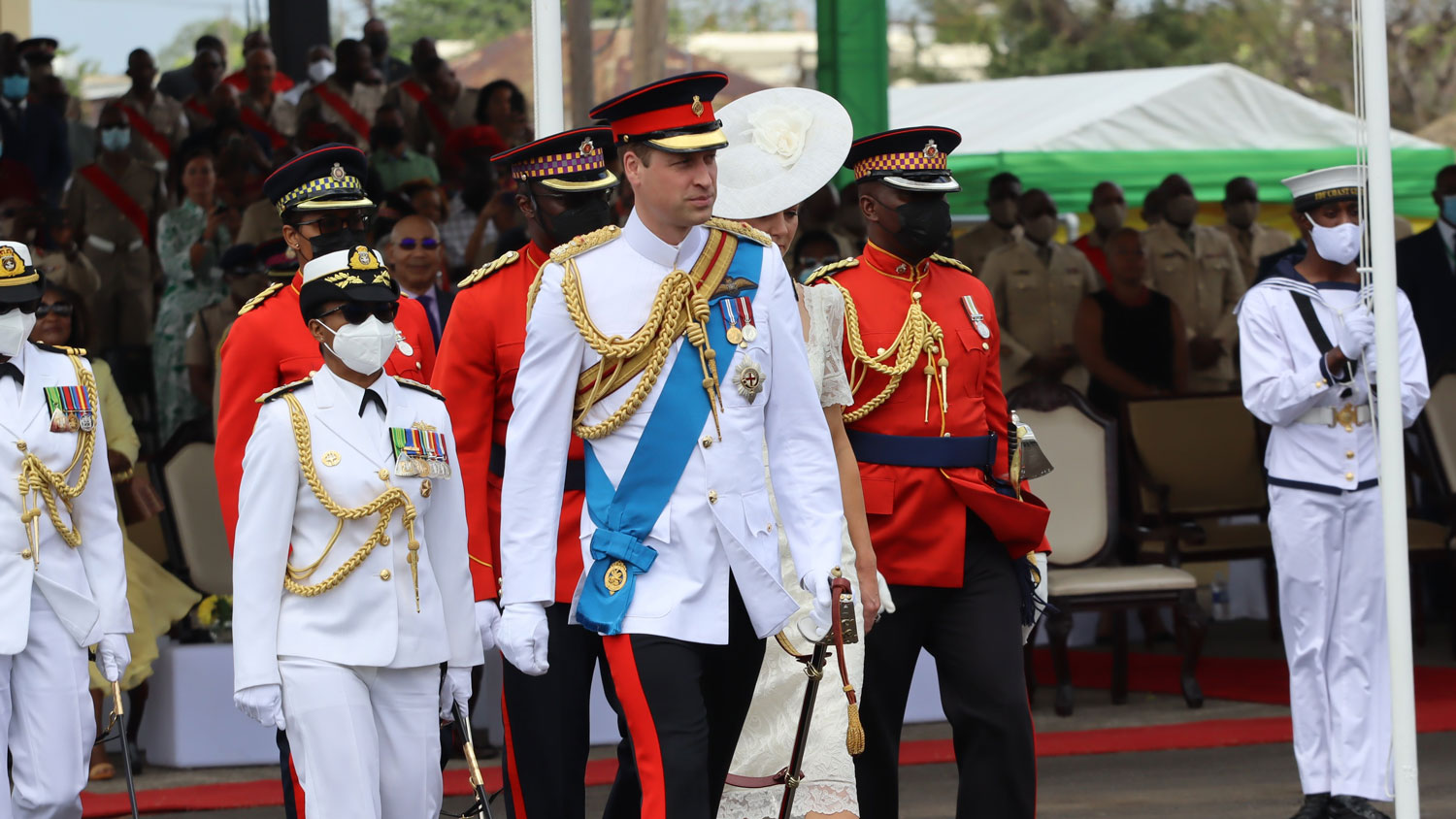
And she has certainly stuck to her own advice.
RAdm Wemyss-Gorman strongly believes that cultural change must be led from the top down, especially in a working environment that is traditionally male-dominated, like the military.
She said: "If the top is doing it and demonstrating it and it's a priority, then it filters down."
The Chief of Defence Staff has been a crucial influence in creating policies that were "nuanced and enabled opportunity for women" like never before.
She said: "Two policies I'm very proud of is our sexual harassment prevention policy and our gender optimisation policy, which we put in place whilst I was XO.
"And we've also updated our maternity policy, which enabled more opportunities and inclusion for women.
"And it's not just very gender-biased to females either because we have now added our paternity policy."
RAdm Wemyss-Gorman is determined the Jamaica Defence Forces focuses on gender opportunity instead of equality.
As she explains, the CDS' work has ensured that anything the JDF does involves a minimum of 25% of men or women.
She explains: "There are some things in the force that were dominated by females and we now require that there must be at least 25% males involved in those particular areas and our courses that are related to those areas."
Breaking the glass ceiling in Jamaican defence
RAdm Wemyss-Gorman isn't shy about knowing and expressing her worth.
Her joyful confidence in her success and that of all women in the JDF is infectious and will undoubtedly inspire future generations of women to take action for what they believe in.
Of her role in the cultural change within the JDF, the Chief of the Defence Staff said: "It was quite demonstrable, in particular, that the unit I served in ended up having the higher percentage of women in all areas and that's at the Coast Guard.
"So we now have more female officers at the Coast Guard than anywhere else in the force.
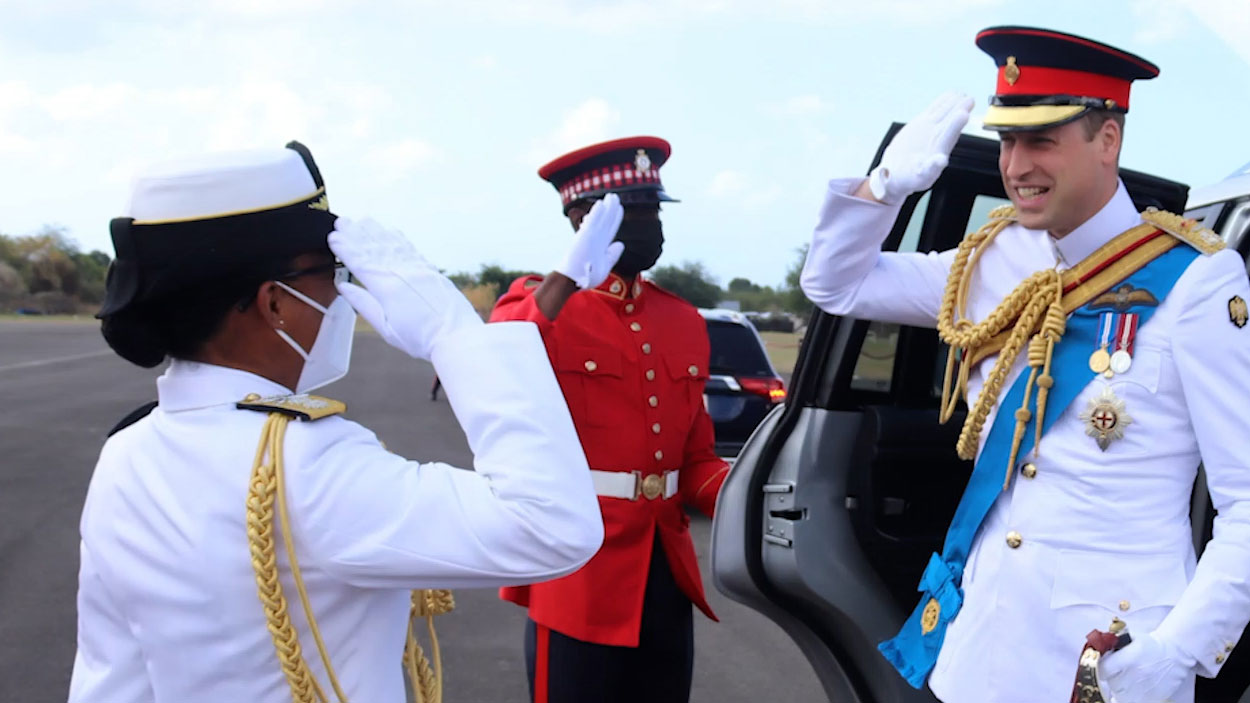
"And, of course, we have enlisted in all the different trades and specifications there at the Coast Guard from early on, so we were well ahead.
"I think that was as a direct result of my success and my influence and ability to just demonstrate and shift the thinking and the culture in that particular unit, and that is now spreading out into the wider force."
RAdm Wemyss-Gorman is also seeing a shift in how other military leaders react to a woman being in such a position of power.
She said: "In some cultures, particularly Latin cultures, it is taken by extreme surprise.
"Before social media, it would always be, 'Oh, a woman, how did that happen?' but now people are more aware, so it is less of a surprise."
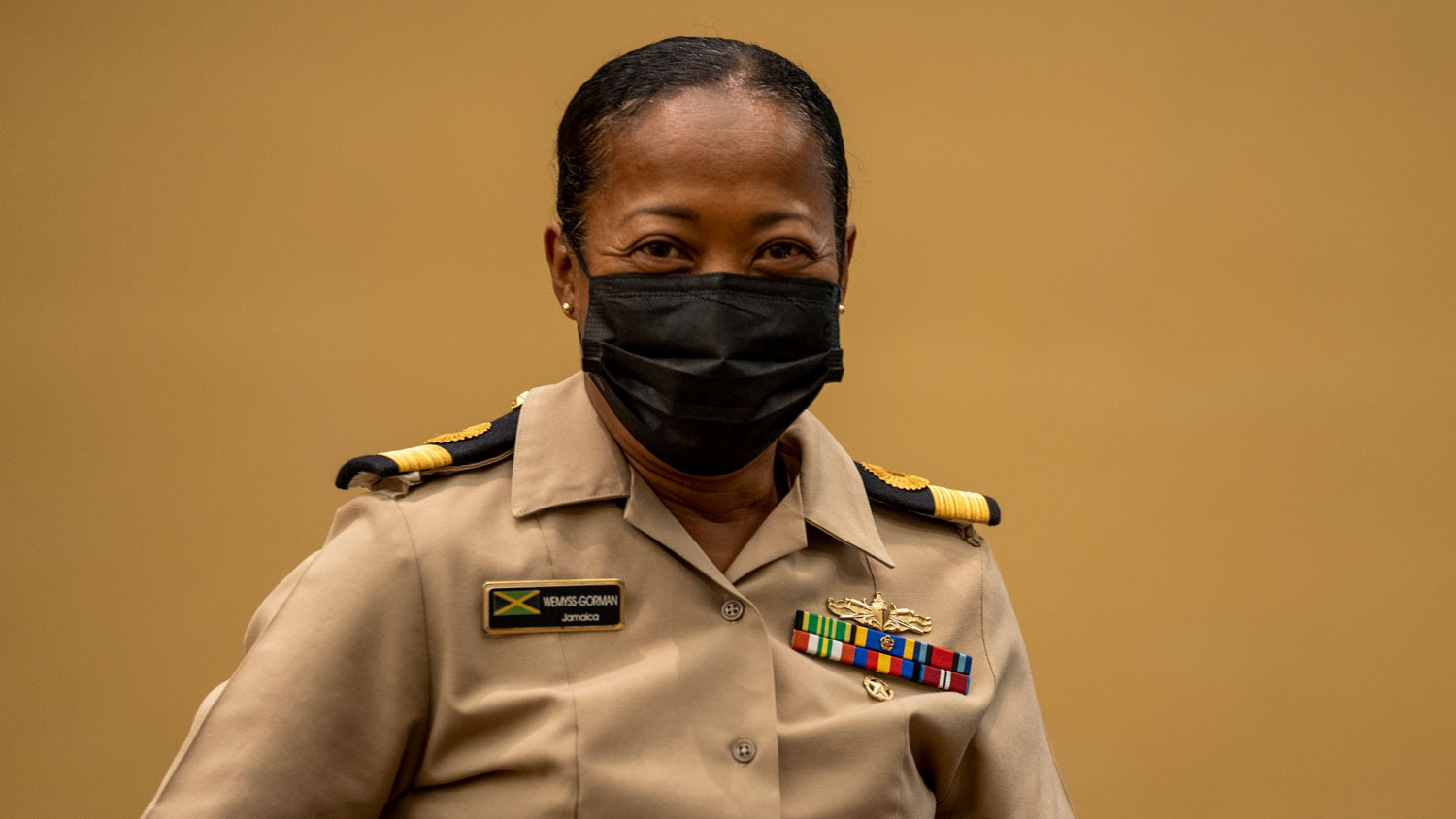
Uncomfortable in the spotlight
RAdm Wemyss-Gorman understands why there is an increased interest in her taking on the role compared to that of her male predecessors, but she is keen to point out she is not unique in her journey.
She places herself as one of many pioneering women in the armed forces of the world who have forged their way toward success and become an inspiration to all genders.
Women such as Lt Gen Dame Sharon Nesmith, the UK's Deputy Chief of the General Staff, Maj Gen Alenka Ermenc, the first female Chief of the General Staff in the world and Mrs Ena Collymore-Woodstock, the oldest surviving female veteran of the British Army.
RAdm Wemyss-Gorman honoured Mrs Collymore-Woodstock's military service on the veteran's 106th birthday in September 2023 and paid tribute to her groundbreaking career in law when she transitioned to civvy street.
Just like the JDF's Chief of Defence Staff, Mrs Collymore-Woodstock was a pioneer herself.
She was one of the first women from the West Indies to volunteer to go to war and after the Second World War became the first black woman to train at Gray's Inn in the UK to become a barrister.
In 1953, Mrs Collymore-Woodstock became the first woman in Jamaica to become the Deputy Crown Solicitor and six years later became Jamaica's first woman to hold judicial office when she was appointed a Resident Magistrate.
RAdm Wemyss-Gorman is keen for people to remember that while she has earned the position she now holds, she recognises the part opportunity played, saying: "[My success] just happened to have occurred in the spotlight because other women had not had the opportunity to do some of the things I did.
"But there were lots of women who served in the Jamaica Defense Force and in other military forces that already demonstrated that these things were possible, not just because you happen to have one gender.
"I ended up in the right place at the right time where persons were forward thinking enough to allow me to explore my full potential."
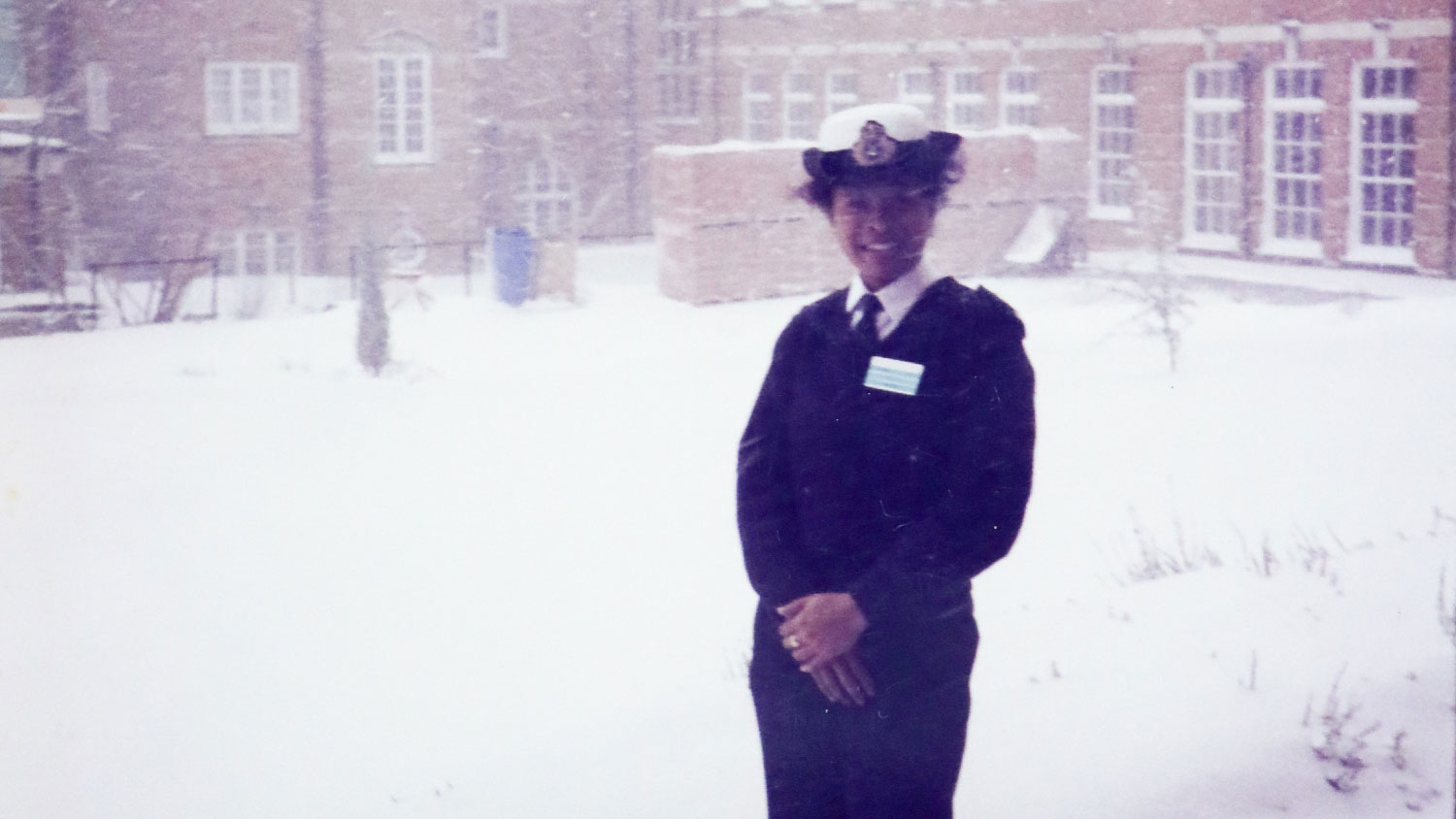
Training at Dartmouth
When asked to recall her time training in the UK, RAdm Wemyss-Gorman's light-hearted and quick response of "cold" prompts a chuckle from Sitrep's Kate Gerbeau.
The CDS, who was just 19 when she travelled to the UK in 1992 to train at Britannia Royal Naval College, says the training she received there was exceptional and that the experience "really set the stage for my career".
Describing her first time living in a temperate country as "interesting" – in one photo she shared with Forces News, she is standing in several inches of snow – RAdm glosses over some of the more difficult challenges she faced.
She said: "As an international midshipman at the Britannia Royal Naval College, I was the only female in the international midshipman group, which was a vast mix of nationalities, but primarily Middle Eastern.
"You can imagine the challenges that came with that.
"I was also the only black female in the college in total so that also came with its own interesting experiences."
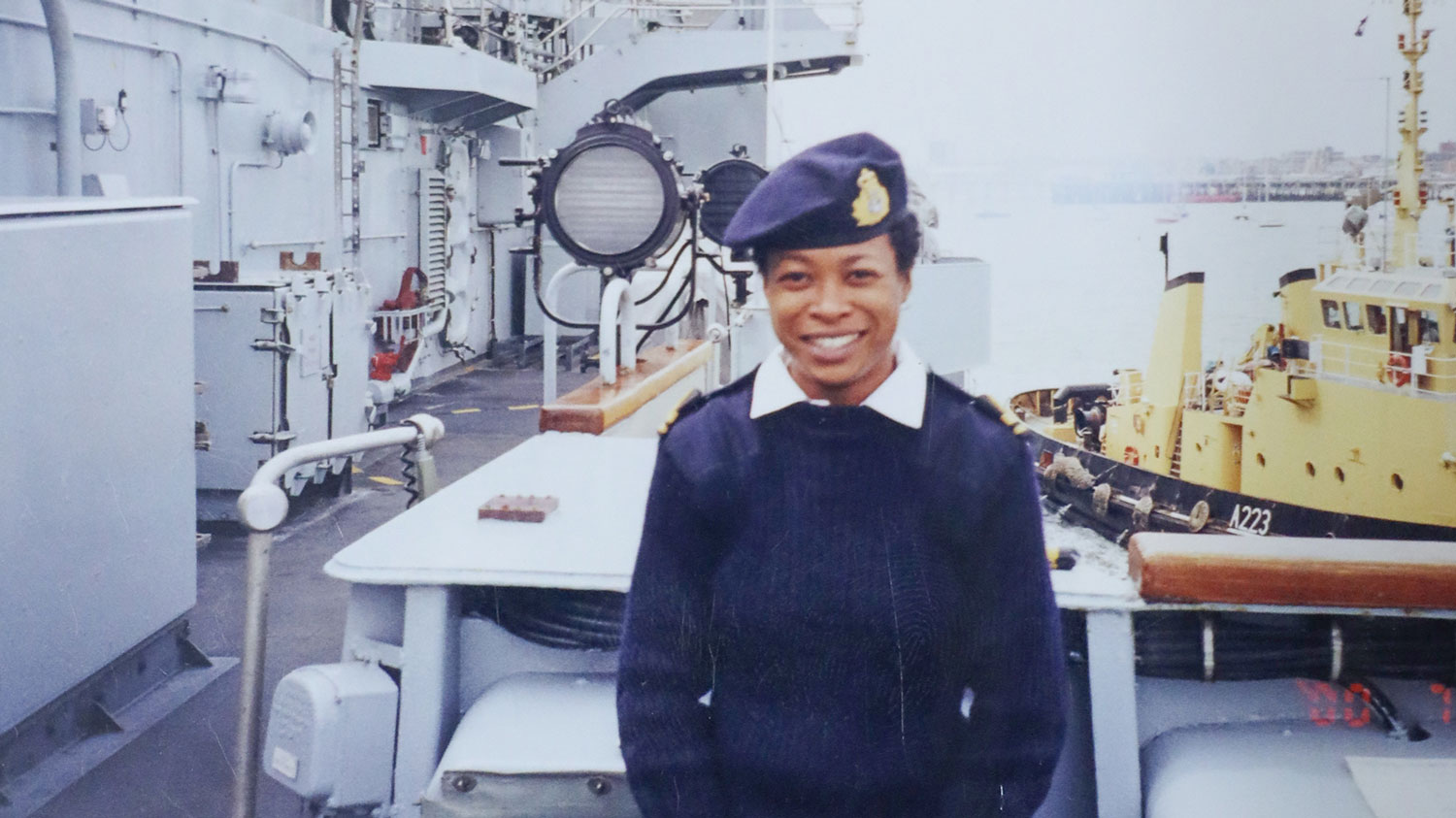
Does being a woman bring something different to the role of Chief of Defence Staff?
Rear Admiral Wemyss-Gorman believes that women often approach problems from a different perspective than men, allowing them to offer unique solutions.
Traditional beliefs around women's roles are deeply entrenched in Jamaica and the same goes for its defence.
In her 30-year career, the Rear Admiral has worked for superiors with different styles of leadership than her own.
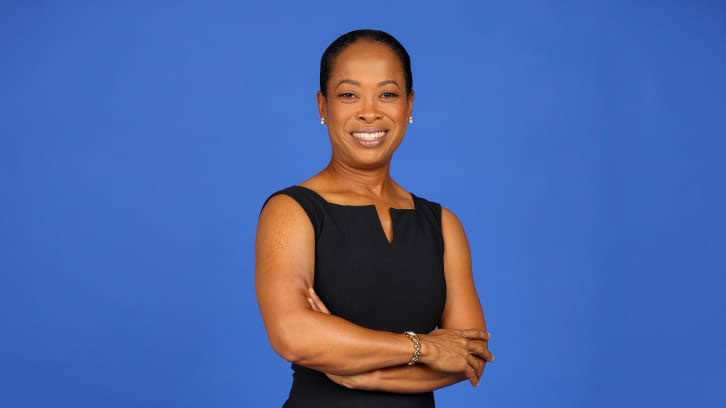
She believes women have the opportunity to change the expectation of leaders in positions of power, saying: "Traditionally, also the military environment, there is a lot of testosterone and, historically, it is a hierarchical kind of institution and organisation.
"So people... carry out their leadership in a way that is very dictatorial.
"But it doesn't have to be that way and I think women don't necessarily have that approach. Some do, but not all."









